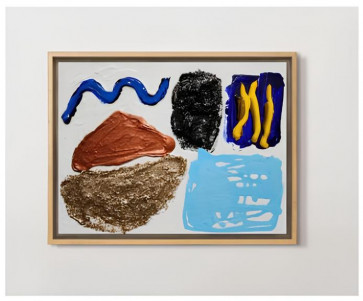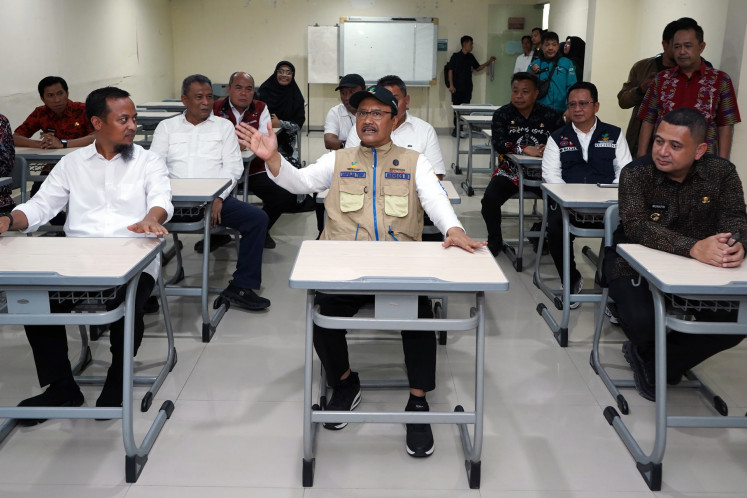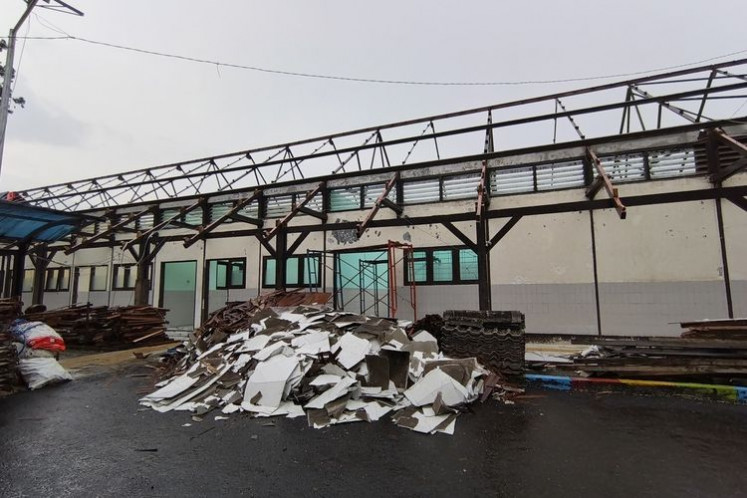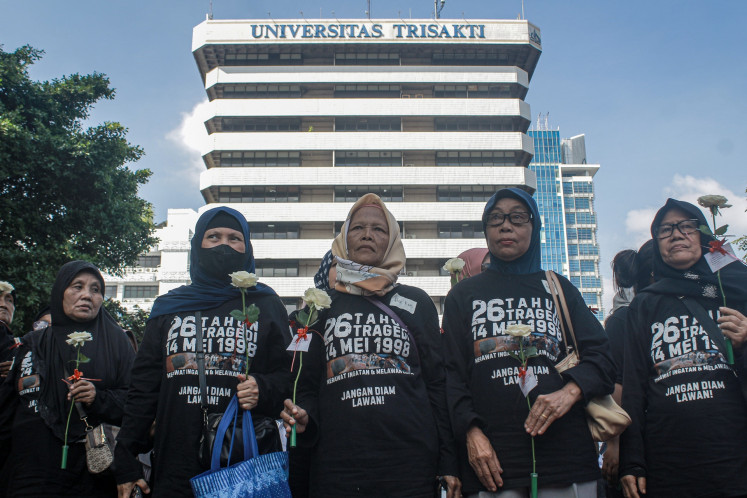Fighting plastic trash problems the Plasticology way
Change text size
Gift Premium Articles
to Anyone
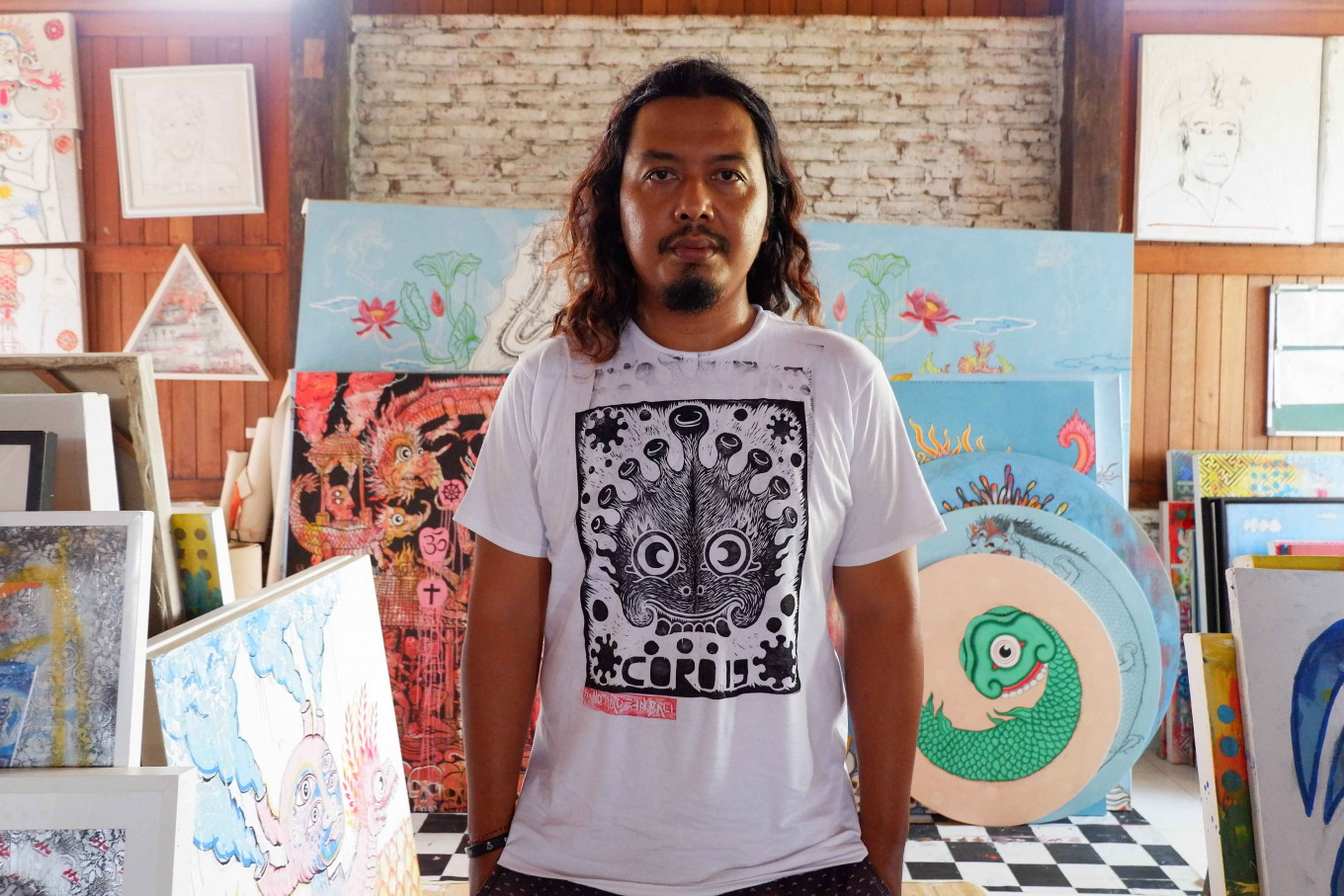
For 15 years, Balinese artist Made Bayak has promoted a greener Bali through his 'Plasticology' artworks.
Plasticology, a combination of "plastic" and "ecology", is a series of artworks created from plastic rubbish collected on the island. It aims to raise public awareness about Bali's environmental problems.
"The earlier generations passed down so many extraordinary things, such as knowledge, traditions and rituals. However, the current generation leaves this island with so much trash. My artwork tries to combine the noble values left by our ancestors with the plastic trash issue," Bayak explains.
The 41-year-old, who grew up in Tampaksiring, a town in Central Bali, was tired of seeing Bali exploited for tourism needs, which often left massive amounts of unsustainable waste.
Bayak believed that the teachings of Balinese ancestors, such as respecting water, were the answer to the environmental issues in Bali. His paintings evoke this belief.
Canvases
The Plasticology campaign, which Bayak started in the early 2000s, uses non-recyclable plastic waste, such as plastic bags, plastic packaging and bottle labels, as canvases.
A painting titled "Bhutakala Plastic No.4", displayed at Bayak's studio in Gianyar, is part of Bayak's Plasticology painting series. It utilizes two pieces of used green plastic bags as a canvas, with a dragon painted on the surface of the flattened trash.
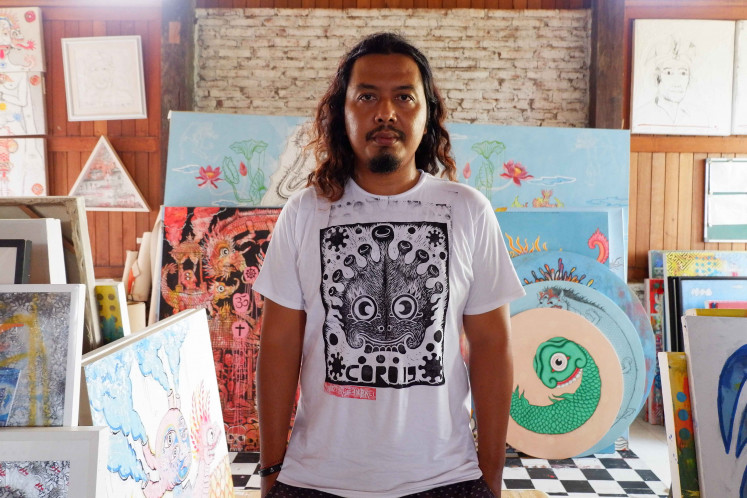
Bayak intends to show the contradiction between ancestors' glorification of water and today's generation's disrespect for water.
"In Bali, the dragon is the symbol of water or rivers. Before rituals, we go to water sources to purify ourselves. The glorification of water by Balinese ancestors was extraordinary. However, in Tampaksiring, for example, now people carelessly litter 500 meters from a water source," he said.
Bayak often uses plastic brand labels usually stuck to bottles to create his art because, unlike the bottles themselves, these labels cannot be recycled, reused or resold.
Labels are often discarded in a way that is harmful to the environment – chopped and then burned.
Bayak focuses on utilizing non-recyclable items, such as bottle labels and aluminum foil packaging, for the Plasticology project.
"Don't litter carelessly or burn plastic waste. This can produce harmful gasses such as dioxin and pollute the air," Bayak said.
No leftovers allowed
Bayak is aware that he is not the only artist who has turned trash into artwork. Plasticology differs because Bayak does not produce any leftovers from discarded items that he uses to make the artworks.
According to Bayak, many artists make installations from trash which, ironically, turn into trash again after the exhibition ends.
"In Plasticology, I do not want to make something extraordinary if I do not know what will happen to it."
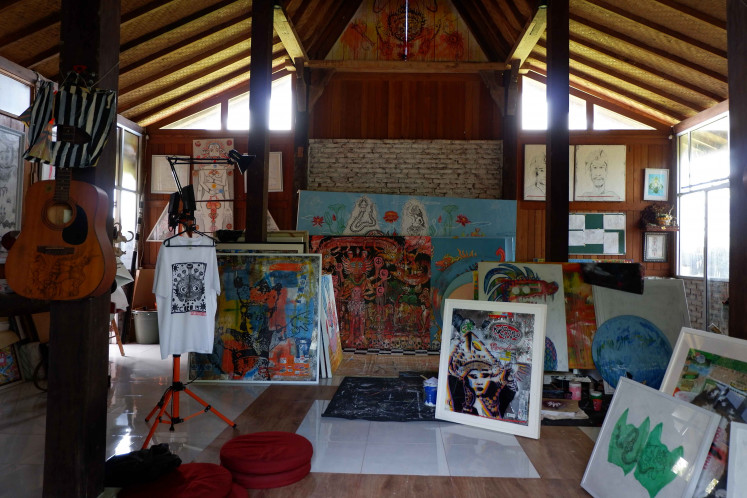
Bayak said artists should realize they also have environmental responsibilities. He refuses to create installations for events when the organizers fail to show him that they would be environmentally aware and socially responsible.
In 2018, for example, Bayak declined to create large trash installations for the Maritime Affairs and Fisheries Ministry's march for single-use-plastic bans as the organizers had no idea what it would do with the installations post-event.
"I would feel guilty if the installations were dismantled and then became trash again after the event was over," he said.
Everyone's responsibility
Bayak, who graduated from the Indonesian Art Institute (ISI) Denpasar in 2006, has earned the respect of his peers and art critics for his Plasticology campaign.
He has participated in various art exhibitions and residencies in many countries, from Italy, Germany, to the United States. His latest exhibition pre-pandemic was Bali-Behind The Scenes at Tropenmuseum in the Netherlands in February 2020.
In the exhibition, he exposed plastic trash problems and the loss of Balinese people's identity as it had become one of the world's most popular tourist destinations.
Despite the extensive recognition from art critics, Bayak admitted that some people criticized him for painting on plastic waste.
They told him they would feel disgusted if they saw his paintings in a room, even if trash had been covered with a frame and clear acrylic glass.
"That [criticism] is part of the feedback that I want from people who see my work," said Bayak.
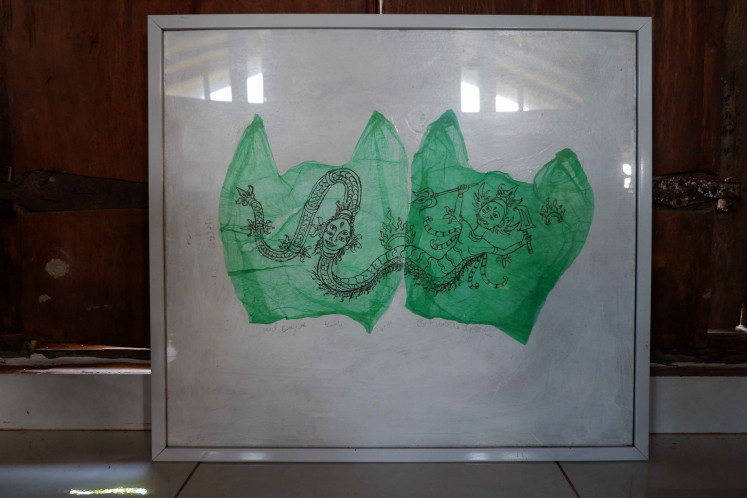
He opined that the criticism might come from a general thought that trash is dirty and that people should distance themselves.
He considers this thinking the root of why people do not feel socially responsible for the trash they create after it leaves the house and is picked up by garbagemen.
Free workshops
Activist I Wayan Gendo Suardana praised Bayak's Plasticology campaign, saying he was awed by the artist's devotion to saving Bali's environment.
He praised Bayak for not being in his studio all day long. Bayak often takes to the streets to fight for what he thinks is right. In a performance titled "Re-claim Our Dream and Future" in 2014, he buried himself in a public area to protest the planned Benoa Bay reclamation project.
Bayak also often holds plasticology workshops during his exhibitions, said Gendo, which shows he is not stingy with his knowledge and skills.
"The workshops are free. Bayak never talks about money when it comes to education. He usually only asks for assistance in securing equipment, such as scissors, glue and discarded items, for the workshops," Gendo said.
Bayak's plasticology had made people realize that plastic trash could have added value, said Gendo. For example, at the Ganesha University of Education in Singaraja, a port town in northern Bali, students now create artworks from trash for their final examinations.
Gendo believed that plasticology played a part in inspiring those university students as they once joined a plasticology exhibition held by Bayak and his foundation, the Singaraja-based Manik Bumi.
"I also often invite him to visit schools to hold workshops. The students are always enthusiastic," Gendo said.



